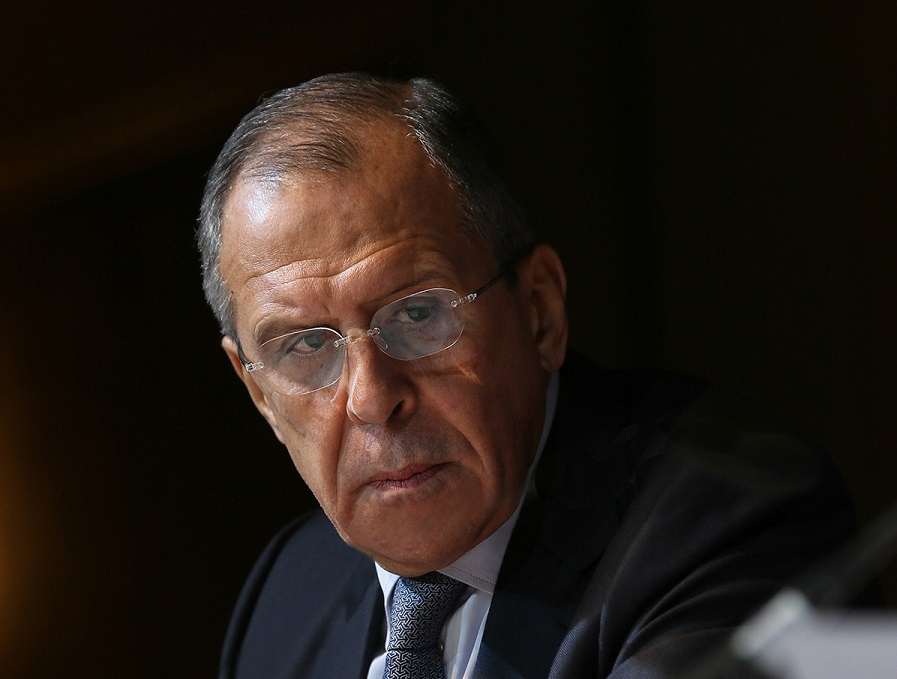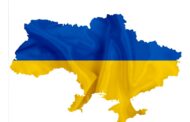Foreign Minister Sergey Lavrov’s interview with the German newspaper Rheinische Post
Published on July 18, 2019
_____________________________________________________________________________________________________________________________________
Questions: Germans would like to have better relations with Russia. What could Russia do towards this?
Sergey Lavrov: I can assure you that Russians are interested in developing multifaceted cooperation with Germany as well, the more so that your country is one of Russia’s major partners in Europe. We have a long, though not always cloudless, history of bilateral relations. It is very important that our close dialogue has not stopped today despite the current difficulties. Many cooperation mechanisms have been suspended, but not at our initiative. For our part, we have been trying to restore full-scale interaction and friendly ties with Germany based on the principles of equality, trust and mutual benefit, and we intend to move toward this at a speed that suits our German partners.
The anti-Russia sanctions policy is seriously damaging Europeans: the shortfall of the EU budgets is estimated at billions of dollars and tens of thousands of jobs have been lost or not created. We believe that the growing awareness of the futility of political and economic pressure on Russia has produced the first results, and that reality will prevail. This is why positive dynamics has been reported in Russian-German relations, primarily in trade, the economy, science, education, culture and the humanitarian sphere, as well as in cooperation between our civil societies. Of huge importance are also the diversified ties at the regional and municipal levels.
We believe our German friends understand that the continued efforts to improve relations with Russia would benefit both sides and that the success of this process also depends on both sides. As for who could be involved and what could be done when it comes to this situation, this question should remain the subject of ongoing discussions at political and diplomatic venues.
Question: Should the Russia-NATO Council resume its work at the top level?
Sergey Lavrov: It should be understood that the work of the Russia-NATO Council at the top and high levels was not suspended through our fault or at our initiative. The decision to curtail practical cooperation and to resort to methods of military-political containment of Russia was taken by the alliance. I would like to remind you that it happened in 2014, when the West unwisely supported the anti-constitutional coup in Ukraine and subsequently turned a blind eye to Kiev’s military campaign against the Donbass residents.
It should be said that there were periods of a Russia-NATO chill before, for example, after the bloc countries’ aggression against Yugoslavia in 1999 and after the Saakashvili government’s military misadventure in South Ossetia in 2008. We managed to overcome these crises. The Pratica di Mare Declaration on the new quality of cooperation and the establishment of the Russia-NATO Council was adopted during the Rome summit in 2002. The council members held a summit meeting in Lisbon in 2010, where they decided to take their relations to the level of strategic partnership.
But the situation is really alarming now. Acting under pressure from Washington, which is pursuing its own geopolitical goals, the NATO countries have adopted an aggressive anti-Russia policy. We see unjustified increases in their military spending: in 2018, the United States alone earmarked over $700 billion and NATO as a whole about $1 trillion for defence, while Russia spent less than $50 billion. The alliance is enhancing its military presence on the borders of Russia and its ally, Belarus, which is increasing the risk of accidental incidents and is escalating military and political tension. Decisions to approve the accession of Montenegro and North Macedonia to NATO look completely illogical when it comes to strengthening the bloc’s defence capability.
This is not what is needed to maintain European security and stability right now. We believe that if they want to reverse negative trends, the authorities of the leading NATO states should revise their policies toward Russia. At the same time, we should develop regular contacts between our military experts at the Russia-NATO Council. Russia has submitted its practical proposals for scaling down military risks and preventing accidental incidents. We are waiting for NATO’s response.
It is the alliance who should initiate the normalisation of relations, as well as the resumption of the Russia-NATO Council’s work at the top level. We are prepared to go as far as our colleagues are ready to go.
Question: What is happening with Nord Stream 2? What can help influence Denmark’s position on this project?
Sergey Lavrov: The construction of Nord Stream 2 is proceeding according to plan. Some 60 percent of the pipeline has been laid, and over 80 percent of the planned outlays have been earmarked.
The benefits of the project are pretty obvious. The funds that have been invested in the project up until now have helped to create over 57,000 jobs in EU countries. The pipeline provides the shortest route for the delivery of gas, which European countries need, from Russia’s northern fields.
It should be noted that Nord Stream 2 is a purely commercial project intended to strengthen Europe’s energy security and cut gas prices for European consumers.
In his context, it is strange that certain forces have been stubbornly trying to throw a spanner in the works to hinder the project’s implementation. This is our interpretation of the amendments to the Gas Directive of the EU’s Third Energy Package, which became effective as of May 23 and which actually contradicts the fundamental principle of protecting investors from amendments in the host country legislation. Given the haste with which the previous – Romanian – EU Council Presidency worked towards the adoption of these amendments, we do not doubt for a second that they were designed exclusively to prevent the implementation of the project.
We regret that Denmark has taken a politicised stand and is dragging its feet when it comes to granting planning permission to build the pipeline in its exclusive economic zone. We believe that delaying the analysis of requests submitted by the project operator is contrary to the international law of the sea, which permits the construction of underwater energy infrastructure projects. It should be noted that not a single country, including Denmark, had any complaints about the route of the first Nord Stream line. This project has been approved by the leading European energy companies, which can hardly be suspected of any anti-Europe intentions.
We hope that the new Danish government formed following the recent parliamentary election will abandon this confrontational approach and adopt some wise decisions.
Overall, we believe that energy cooperation must not be used for settling political scores. We believe that any attempts to force European consumers to buy more expensive American LNG are absolutely undemocratic and run against the market rules. We hope that our German and other European partners’ decisions on gas and any other subjects will take into account the interests of their people rather than instructions issued from across the ocean.
Question: What practical measures should be taken to ensure the implementation of the Minsk agreements? What practical measures is Russia prepared to take? What can revitalise dialogue with the new Ukrainian leadership?
Sergey Lavrov: There is no alternative to the Minsk agreements, which the UN Security Council approved, as the basis for the settlement of the intra-Ukrainian conflict. They must be implemented through a direct dialogue between Kiev, Donetsk and Lugansk. The leaders of the self-proclaimed Donbass republics are ready for this. But the Ukrainian authorities obviously lack the political will.
It should be said that for the past five years our Western partners, instead of stimulating Kiev to honour its obligations, actually condoned with Kiev’s attempts to delay the implementation of the Minsk agreements. They have actually turned a blind eye to such shameful features of the new Ukrainian reality as the rise of neo-Nazism, mandatory restrictions on the use of the Russian language, the persecution of independent media, as well as the Kiev-inspired harassment of the Ukrainian Orthodox Church and believers.
However, we believe that movement towards a settlement is possible if there is goodwill and political resolve. I agree with German Foreign Minister Heiko Maas that the long delayed disengagement of forces and hardware in Stanitsa Luganskaya in late June is a sign of progress and gives hope for peace. We must build on this step forward, including when we are addressing other and no less important matters, the most important of which is a complete ceasefire.
After Vladimir Zelensky was elected president of Ukraine, the United States and Europe started talking about “a window of opportunity” for a settlement in Ukraine, which Russia should use. This is nothing other than double standards and an attempt to shift the responsibility for the implementation of the Minsk agreements onto Russia. Unlike Ukraine, Russia is not a party to the Minsk agreements. It is Kiev that is responsible for implementing a number of the Minsk Package provisions, for example, end the economic blockade of Donetsk and Lugansk, amnesty for the participants in events in Donbass, as well as coordinate a special status for Donbass with Donetsk and Lugansk and formalise it in the Ukrainian Constitution. So far, Zelensky and his team have issued highly contradictory signals.
We would like to see a realistic approach prevail in Kiev. For our part, we are ready to work together with Kiev based on the principles of pragmatism and respect for the fundamental interests of our people. Europeans, above all Germany, should not encourage Kiev’s feeling of permissiveness and should not disregard the large-scale human rights violations in Ukraine and Kiev’s unwillingness to comply with the Minsk agreements. In this sense, Germany is partly responsible for the settlement of the intra-Ukrainian conflict.
Question: When will Russia withdraw from Syria?
Sergey Lavrov: Russia deployed its troops in Syria at the invitation of the country’s legitimate authorities. The legal framework for the Russian military presence in Syria was coordinated in late 2016. These are termless agreements, which can be amended by the two countries’ concerned departments. By the way, according to international law, the US-led “international coalition” is operating in Syria illegally.
The main mission of the Russian military in Syria is to combat terrorism. This problem must be settled eventually. This means, in part, that we will not endlessly tolerate the presence of tens of thousands of extremist fighters affiliated to al-Qaeda in the Idlib de-escalation zone. We will look for a solution that will not be detrimental for the civilian population of the province. There is the negative example of Raqqa, which has been razed by airstrikes by the self-same US-led international coalition.
We believe that the liquidation of the terrorist seat in Syria is in the interest of Europe because this will lower the terrorist threat coming from the region and decrease the inflow of migrants.
However, it would be wrong to limit Russia’s role in Syria to exclusively military operations. Our military are also implementing an important humanitarian mission in Syria. I would like to remind you that the Russian Centre for the Reconciliation of Opposing Sides and Refugee Migration Monitoring in Syria is located at the Khmeimim Air Base. The centre is responsible for negotiations on local ceasefires, the distribution of humanitarian aid, mine clearing, as well as for monitoring the return of displaced persons and refugees back home.
As a guarantor of the Astana process and a permanent member of the UN Security Council, Russia has been working to promote a political settlement in Syria based on decisions of the Syrian National Dialogue Congress and UNSC Resolution 2254. In particular, we are working to try and establish a Constitutional Committee together with Iran, Turkey and the team of the UN Secretary-General’s Special Envoy for Syria. We hope the international community will support our efforts. Ultimately, the restoration of Syria’s sovereignty over the entire territory of the country and a political settlement of the conflict in the interest of the Syrian people as a whole will provide the basis for long-term peaceful developments in Syria.
Question: What de-escalation measures could Russia propose toward settling the conflict between the United States and Iran?
Sergey Lavrov: We are certainly worried when it comes to the situation around Iran. The Islamic Republic is our neighbour; we have developed firm cooperation ties with it in many spheres. We will not suspend our absolutely legitimate cooperation with Iran just to allay anyone’s phobias or satisfy anyone’s whims.
The current outbreak of tension around Iran is a direct result of the US administration’s improvident and even dangerous course. The Americans’ policy of strangling the Iranian economy has led to a dramatic escalation in the Persian Gulf. While Washington and Tehran are exchanging mutual accusations, the Americans have beefed up their naval presence in the region, thereby creating a risk of military confrontation. Any careless movement there can provoke a conflict fraught with unpredictable and destructive consequences.
No wonder that this possibility seriously alarms us. This is why Russia will continue to insist that all sides take de-escalation moves and settle their differences by political and diplomatic means. This spells out above all that Washington should abandon its policy of ultimatums, sanctions and blackmail.
At the same time, we should look at the Gulf developments from a wider angle, primarily taking into account the fact that the United States has unilaterally abandoned its commitments under the Joint Comprehensive Plan of Action (JCPOA) for the settlement of Iran’s nuclear programme. Germany is one of this plan’s signatories. It is clear evidence of Washington’s deliberate efforts to undermine the international architecture of non-proliferation and international security.
We are using contacts at all levels to urge our American colleagues to avoid taking steps that could aggravate tension around Iran. Our common goal is to prevent the situation from going into a tailspin of military confrontation and to resume a consistent implementation of the JCPOA. This is the responsibility of all the other members of the nuclear deal, including Germany.
More broadly speaking, I would like to note that the current crisis has highlighted the need for coordinating a strategic vision of possible stabilisation scenarios for this region. Russia proposed doing this many years ago based on our collective security concept for the Persian Gulf. The idea is to develop equitable cooperation among all the concerned sides, including the five permanent members of the UN Security Council, the Arab League and the Organisation of Islamic Cooperation, so as to gradually move ahead toward defusing conflicts and developing confidence-building measures and controls. These efforts should ultimately lead to the creation of a comprehensive subregional system of collective security and cooperation with the necessary mechanisms and organisational structures. This experience could be later used to create a post-crisis architecture for the Middle East as a whole.
Question: The Council of Europe has restored Russia’s voting rights five years after the so-called annexation of Crimea. German Foreign Minister Heiko Maas described this as a signal for Russia. Does the restoration of the Russian delegation’s powers at PACE indicate the start of normalisation of relations?
Sergey Lavrov: I would like to remind you that our deputies at PACE were deprived of their rights illegally for their political stand on Crimea’s reunification with Russia, which took place in 2014 in full compliance with international law. That decision made by PACE provoked a deep crisis at the Council of Europe.
The return of our deputies back to Strasbourg is not a signal but a necessary step toward an improvement of the unhealthy situation in a common European organisation, where an aggressive anti-Russia minority is actually hindering normal interaction among PACE’s national delegations.
Question: A recent annual report produced by German intelligence and security services mentions the influence of Russian media outlets – the Sputnik news agency and the online publication RT Deutsch – on public opinion in Germany. These media outlets have been accused once again of promoting propaganda and misinformation. According to the report, Russia is increasing its media presence in Germany, while state-financed companies pose as independent media to camouflage their affiliation with the Russian state and to be able to manipulate the public. Can you comment on this please?
Sergey Lavrov: The financing sponsors of Sputnik and RT are openly named on the official sites of these resources and include the Russian government. This is normal practice and not a cause for creating phantom sensations. The governments of Germany, France, Britain, the US, China, Qatar, Saudi Arabia and other countries subsidise various media outlets as well. Russian media outlets are operating in Germany in strict compliance with German legislation and high journalistic standards. We believe that German citizens have a right to receive information of interest to them from various sources. Moreover, as far as we know, Sputnik and RT are very popular in Germany.
Regrettably, we see that certain forces in Germany are inciting hatred toward Russian media outlets that have been denounced as “toxic.” The defamation campaign launched against Sputnik and RT Deutsch involves, among others, members of the local political establishment and professional journalistic organisations. Some of them have called for boycotting our media and for banishing them from the cable networks. Nothing of the kind could ever happen to German media outlets in our country. I believe that operations in this sphere must be guided by the principles of freedom of the media and non-discriminatory access to information, principles that have been formalisedby the UN, the OSCE and other international organisations.
* * * * *
Zdroj a ilustračné foto: http://www.mid.ru/ru/foreign_policy/news/-/asset_publisher/cKNonkJE02Bw/content/id/3728756?p_p_id=101_INSTANCE_cKNonkJE02Bw&_101_INSTANCE_cKNonkJE02Bw_languageId=en_GB







